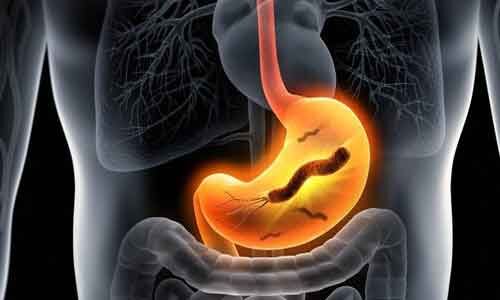- Home
- Medical news & Guidelines
- Anesthesiology
- Cardiology and CTVS
- Critical Care
- Dentistry
- Dermatology
- Diabetes and Endocrinology
- ENT
- Gastroenterology
- Medicine
- Nephrology
- Neurology
- Obstretics-Gynaecology
- Oncology
- Ophthalmology
- Orthopaedics
- Pediatrics-Neonatology
- Psychiatry
- Pulmonology
- Radiology
- Surgery
- Urology
- Laboratory Medicine
- Diet
- Nursing
- Paramedical
- Physiotherapy
- Health news
- Fact Check
- Bone Health Fact Check
- Brain Health Fact Check
- Cancer Related Fact Check
- Child Care Fact Check
- Dental and oral health fact check
- Diabetes and metabolic health fact check
- Diet and Nutrition Fact Check
- Eye and ENT Care Fact Check
- Fitness fact check
- Gut health fact check
- Heart health fact check
- Kidney health fact check
- Medical education fact check
- Men's health fact check
- Respiratory fact check
- Skin and hair care fact check
- Vaccine and Immunization fact check
- Women's health fact check
- AYUSH
- State News
- Andaman and Nicobar Islands
- Andhra Pradesh
- Arunachal Pradesh
- Assam
- Bihar
- Chandigarh
- Chattisgarh
- Dadra and Nagar Haveli
- Daman and Diu
- Delhi
- Goa
- Gujarat
- Haryana
- Himachal Pradesh
- Jammu & Kashmir
- Jharkhand
- Karnataka
- Kerala
- Ladakh
- Lakshadweep
- Madhya Pradesh
- Maharashtra
- Manipur
- Meghalaya
- Mizoram
- Nagaland
- Odisha
- Puducherry
- Punjab
- Rajasthan
- Sikkim
- Tamil Nadu
- Telangana
- Tripura
- Uttar Pradesh
- Uttrakhand
- West Bengal
- Medical Education
- Industry
Are clarithromycin-based therapies ineffective for H. pylori infection? Study sheds light

USA: RHB-105 can be prescribed first-line without concerns about clarithromycin resistance or CYP2C19 status as it does not contain clarithromycin, suggests a recent study in the journal Digestive Diseases and Sciences. RHB-105 was approved by the US Food and Drug Administration (USFDA) in 2019 for the treatment of H. pylori infection in adults.
The study notes that rates of clarithromycin-based therapies (CBT) persist despite its sub-optimal eradication rates.
Helicobacter pylori (H. pylori) infection affects a large number of people worldwide and if untreated can lead to serious sequelae. Growing research has indicated that CBT is becoming increasingly ineffective for the treatment of H. pylori infection.
Kely L. Sheldon, RedHill Biopharma, NC, USA, and colleagues aimed to assess prescribing patterns and associated cure rates of physician-directed therapy for subjects with persistent H. pylori infection after participation in one of two Phase 3 clinical trials.
For this purpose, the researchers reviewed the study to identify physician-directed regimens selected for participants whose H. pylori infection was not eradicated. CYP2C19 genotype analysis of subjects was also conducted for subjects who were prescribed CBT. Finally, they analyzed real-world H. pylori retail prescription data and compared these to the physician-directed therapies in the clinical trials studies.
Following were the study's key findings:
- Following ERADICATE Hp, CBT was prescribed for 27/31 (87%) subjects achieving a 59.3% cure rate.
- Following ERADICATE Hp2, CBT was prescribed for 48/94 (51%) subjects achieving a 60.4% cure rate.
- Rapid CYP2C19 metabolizers (2/11) had a cure rate of 18.2% with CBT.
- Real-world prescription data from IQVIA showed more than 80% of prescriptions for H. pylori infection were for CBT.
"There is a persistence of rates of CBT use despite sub-optimal eradication rates," wrote the authors. "Since RHB-105 does not contain clarithromycin, it can be prescribed first-line without concerns about clarithromycin resistance or CYP2C19 status."
Reference:
Howden, C.W., Sheldon, K.L., Almenoff, J.S. et al. Pitfalls of Physician-Directed Treatment of Helicobacter pylori: Results from Two Phase 3 Clinical Trials and Real-World Prescribing Data. Dig Dis Sci (2021). https://doi.org/10.1007/s10620-021-07323-5
Dr Kamal Kant Kohli-MBBS, DTCD- a chest specialist with more than 30 years of practice and a flair for writing clinical articles, Dr Kamal Kant Kohli joined Medical Dialogues as a Chief Editor of Medical News. Besides writing articles, as an editor, he proofreads and verifies all the medical content published on Medical Dialogues including those coming from journals, studies,medical conferences,guidelines etc. Email: drkohli@medicaldialogues.in. Contact no. 011-43720751


